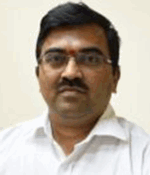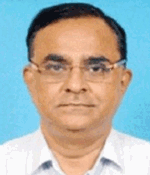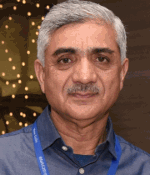The current issue of the IETE Journal of Research (Vol.65, No.3, May-June 2019) contains 12 articles. These articles present ongoing research and developments taking place in the broad areas of Biomedical Engineering, Microelectronics, Power Systems, Signal Processing and Control Systems.
The paper titled “A Self-Learning Fuzzy Rule-based System for Risk-Level Assessment of Coronary Heart Disease”, presents a system for the early detection of coronary disease using self-learning fuzzy-rule approach. The system architecture consists of a diagnosis module for user interface, a fuzzy inferencing module and a rule generation module based on training data. The risk level is categorized based on several attributes. The study has been done on annotated dataset and the results of performance have been presented and compared with those of other systems using several performance measures.
In the paper on “Adaptive Neuro Fuzzy Inference System Technique on Polysomnographs for the detection of Stressful Conditions,” a method for the detection of heat stress on rat subjects is presented. The classification of sleep stages is done followed by stress classification. A neuro-fuzzy inference system with Mamdani fuzzy model has been derived and the results of performance of the system are presented.
The next paper on “Adaptive Support-Weight Stereo-Matching Approach with Two Disparity Refinement Steps,” is concerned with the problem of obtaining depth information from images. It obtains disparity image and uses an adaptive support-weight (ASW) algorithm along with other refinement steps to address the shortcomings of the ASW only algorithm for the problem. The ASW method is a spatially local processing method. The performance of the algorithm is analyzed with different parameters and is compared with other algorithms’ performance.
The paper “CMOS Bulk-Controlled Fully Programmable Neuron for Artificial Neural Networks” presents a design of a neuron structure including the synapse and logistic function for the purpose of realizing artificial neural network (ANN) on silicon in hardware form. This is required for realizing ANN and deep neural network processing framework in CMOS hardware. The designed circuit has flexibility of programming such that the output waveforms can be controlled through MOS transistors. The simulation analysis post-layout and realization aspects on CMOS at 0.18 um technology are discussed. The paper compares several aspects of the design with other previous designs from the literature in terms of accuracy, transistor count, power consumption and other aspects.
The paper on “Comparative Analysis of Induction Motor Drive with Chopper Controlled SPRS Employing Various Inverter Configurations,” presents a method for enhancing the performance of induction motor drive. This is done by buck-boost chopper and inverter. Analytical and simulation studies on slip power recover scheme with pulse width modulated voltage source inverter and buck-boost chopper are reported in the paper, along with the performance in terms of total harmonic distortion of the supply.
The next paper on “Dynamic Model and Small Signal Analysis of Z-Source Inverter,” presents the dynamic model of a three-phase Z-source inverter. The steady-state model and AC small signal analysis are used for the dynamic model. The model can also be used for three phase Z-source converter in the inverting mode. The dynamic model was validated and compared with circuit implementation in software tool. Sensitivity analysis and other tests are performed. The results are presented in the paper.
The paper on “Membership-Function-Dependent Stability and Stabilization Conditions for T–S Fuzzy Time-Delay Systems,” presents the stability analysis and stabilization procedure of nonlinear systems characterized by time-delays. The method uses Takagi-Sugeno fuzzy model. The paper derives relaxed delay-dependent relaxed conditions. A flexible fuzzy controller design is also given. The paper presents result of test and validation of its effectiveness using simulation experiments.
The paper on “Order Reduction Techniques via Routh Approximation: A Critical Survey”, presents a survey of the various Routh Approximation algorithms over the last five decades. Its use is relevant in deriving reduced order models in control problems. The paper presents the Routh Approximation problem and discusses the algorithms for both continuous-time and discrete-time non-interval systems and continuous-time and discrete-time interval systems. The extensive list of references in this survey paper can be useful for researchers in this field.
In “Performance Evaluations of Amplify-and-Forward Relaying System Over Weibull-Gamma Fading Environment,” the authors present the analysis of dual-hop relaying systems under Weibull-gamma fading. Both noise and interference limited conditions are reported. The paper gives analytical expressions for the outage probability and the bit error rate as function of SNR. It presents a discussion on the inter-dependence of these parameters.
The next paper “Secrecy Mutual Information of the Independent and Identically Distributed Nakagami-q Fading SIMO Channel”, presents the analysis for secret communication on an independent and identically distributed Nakagami-q fading single-input multiple-output channel. It considers both receiver and eavesdropper with multiple antennas. The expressions for the secrecy mutual information, secure outage probability and ergodic secrecy mutual information are derived. Simulations for different conditions have been done on these analytical expressions and conclusions are drawn from them.
The paper titled “Two-Degree-of-Freedom Robust Controller Design Approach for Fuzzy Parametric Uncertain Systems using Particle Swarm Optimization,” presents the design approach for a two-degree-of-freedom robust controller for fuzzy parametric uncertain systems from the perspective of robust stability and performance. The robust stability is obtained using the stability conditions for interval systems. The system performance is adjusted with a pre-filter. Necessary and sufficient conditions for robust stability of the interval polynomial are derived. A robust stabilizing controller design is presented with particle swarm optimization technique. The design approach is suitable for digital implementation, and its use is demonstrated with an example. The approach is also compared with other approaches from the research literature and conclusions are drawn from this study.
The paper “Word Level Multi-Script Identification Using Curvelet Transform in Log-Polar Domain” deals with the problem of script identification from word images of printed and handwritten texts. It uses skew and scale invariant Curvelet features. The classifier does not require training, as it is based on k-nearest neighbour method. The steps of the method are presented. The performance is evaluated on several datasets, and results are reported for two, three and multi-script identification. It is also compared with other methods statistically and inferences are drawn from the study.
More Editors appointed in IETE Journal of Research
We are delighted to welcome Dr Sushil Thale and Dr Bishwajit Chakraborty, who have joined the Editorial Team of IETE Journal of Research as the editors from 2019. Down below are brief profiles of these two newly appointed Editors.
The other editors of IETE Journal of Research are: Dr Sheel Aditya (Nanyang Technological University, Singapore), Prof Ananjan Basu (IIT, Delhi), Prof Bijnan Bandyopadhyay (IIT, Bombay), Dr Shouribrata Chatterjee (IIT, Delhi), Dr Goutam Chattopadhyay (California Institute of Technology, Pasadena, USA), Prof M S Gaur (IIT, Jammu), Prof Jayadeva (IIT, Delhi), Prof Arun Kumar(IIT, Delhi), Dr Vijay Laxmi (MNIT, Jaipur), Dr Sudipta Mukhopadhyay (IIT, Kharagpur), Prof Bijaya Ketan Panigrahi (IIT, Delhi), Prof Ajay K. Poddar (Oradea University, Romania), Prof Rajarshi Roy (IIT, Kharagpur), Dr Kamal K. Samanta (Sony Europe Ltd., Basingstoke, UK), Prof Prasad Shastry (Bradley University, Peoria, Illinois), Prof Bhim Singh (IIT, Delhi), Prof K Thyagarajan (Bennett University, Greater Noida), Prof Suneet Tuli (Bennett University, Greater Noida) and Prof K.J Vinoy (IISc, Bangalore).

Dr Sushil Thale is a senior academician with 25 years of teaching and industrial experience. He completed his PhD from Dept. of Electrical Engineering, IIT-Bombay in the field of microgrids in power electronics and power systems group. Before completing his PhD, he received Diploma in electronics from VJTI, BE in electrical engineering from Sardar Patel College of Engineering, Mumbai and ME in control systems from VJTI, Mumbai. He is currently working as Professor in Department of Electrical Engineering and Dean (R&D) at Fr. C. Rodrigues Institute of Technology affiliated to University of Mumbai. He worked with Siemens Ltd. before joining Fr. C. Rodrigues Institute of Technology as a lecturer in 1995. He is a Certified Energy Auditor (CEA) practicing the energy conservation techniques in various fields. He is actively involved in technology development in collaboration with various industries in the field of power electronics, renewable energy, electric vehicles, traction equipments and lighting. He is a Senior Member of IEEE; Fellow of Indian Society of Lighting Engineers (ISLE); Institution of Electronics and Telecommunications Engineers (IETE) and Institute of Engineers (IE). He is also Member of The Indian Society of Heating, Refrigerating and Air Conditioning Engineers (ISHRAE) and Society of Automotive Engineers (SAE).
Dr Thale is a reviewer for various IEEE Transactions journals as well as other journals of repute. He teaches courses on Microgrids and Smartgrids, DSP applications in Power Electronics and Power Systems at UG/PG level. Dr Thale's research interests are primarily in the areas of sustainable technologies including renewable energy, smart-grid, micro-grids and electric vehicles.
https://orcid.org/0000-0002-6469-1248
E-mail: [email protected], [email protected]

Dr Bishwajit Chakraborty was born in Varanasi, India, on May 4, 1958. He received the MSc and PhD degrees in physics from Banaras Hindu University, Varanasi, India, in 1980 and 1989, respectively. He joined the Geological Oceanography Division, Council of Scientific and Industrial Research-National Institute of Oceanography (CSIR-NIO), Dona Paula, Goa, India, in 1983, and retired as a Chief Scientist. He has worked on various institutional projects related to the seafloor studies using multibeam backscatter. He also was on a postdoctoral Marie Curie Fellowship in Germany in 1994. Dr Chakraborty was a Visiting Scientist at the Alfred Wegener Institute, Bremerhaven, Germany, in 2002. He has contributed to marine geoscientific research by applying acoustic techniques for the understanding of the seafloor processes. He has also contributed in the development of pattern-recognition-based soft-computational techniques, such as artificial neural network. He has worked on the non-linear techniques applied to marine mammal and fish sound. Dr Chakraborty is a recipient of the 1992 CSIR Young Scientist Award. He also received the CSIR Technology Award in 2004 and the National Mineral Award in 2006. He is a member of the Acoustical Society of America. He co-convened the 2010 Indo-U.S. Shallow-Water Acoustics Workshop, Goa, India, supported by the CSIR and the Office of Naval Research Global (ONRG). He is a recipient of the Prof S Bhagwantam Award of Acoustical Society of India. He is Chief Editor of JASI. He is a Senior Member, IEEE. Dr Chakraborty is a founding member of the International Quiet Ocean Experiment (IQOE) of the SCOR (Scientific Committee Ocean Research).
E-mail: [email protected]
Additional information
Notes on contributors

Shiban K. Koul
Shiban K Koul is Dr R P Shenoy Astra Microwave Chair Professor at the Indian Institute of Technology, Delhi. He served as Deputy Director (Strategy and Planning) at IIT Delhi from 2012–2016. Currently, he is the Mentor Deputy Director (Strategy & Planning, International affairs) at IIT Jammu. He served as the Chairman of Astra Microwave Products Limited, Hyderabad from 2009–2019. His research interests include: RF MEMS, High Frequency Wireless Communication, Microwave Engineering, Microwave Passive and Active Circuits, Device modeling, Millimeter wave IC design and Reconfigurable microwave circuits including antennas. Completed 38 major sponsored projects, 52 consultancy projects and 60 technology development projects. He has authored 413 papers, 9 state-of-the art books and 3 book chapters. He holds 10 patents and 6 copyrights. He is a Fellow of IEEE, INAE and IETE. He is the Chief Editor of IETE Journal of Research, Associate Editor of the International Journal of Microwave and Wireless Technologies, Cambridge University Press. He served as a Distinguished Microwave Lecturer of IEEE MTT-S for the period 2012–2014.
Recipient of numerous awards including IEEE MTT Society Distinguished Educator Award (2014); Teaching Excellence Award (2012) from IIT Delhi; Award for contributions made to the growth of smart material technology (2012) by the ISSS, Bangalore, Vasvik Award (2012) for the contributions made to the area of Information, Communication Technology (ICT) and M N Saha Memorial Award (2013) from IETE.
